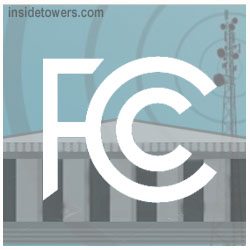Some small telecoms are in the FCC’s crosshairs. The agency believes certain smaller providers are responsible for originating an increasing amount of illegal robocalls. On Thursday, the Commissioners voted to shorten the time-frame for smaller providers to incorporate caller ID authentication technology in their networks.
During the meeting, FCC Acting Chairwoman Jessica Rosenworcel noted the Commission previously required carriers to implement the STIR/SHAKEN framework in the IP portions of their networks by June 30 of this year. But smaller carriers with fewer than 100,000 subscribers were given more time—until June 30, 2023.
“That makes sense for honest providers who have fewer resources to come into compliance,” said Rosenworcel. “But we recently discovered that some of the smaller carriers are pumping large volumes of traffic onto our networks and a lot of it looks suspiciously like robocalls.”
The FCC voted 4-0 to seek comment on shortening the STIR/SHAKEN framework implementation deadline for smaller carriers by a year — until June 30, 2022. The agency also seeks public input on whether to adopt additional measures, including data submissions, to facilitate oversight to ensure that small voice service providers subject to a shortened extension actually implement the robocall blocking technology on time.
STIR/SHAKEN are acronyms for the Secure Telephone Identity Revisited (STIR) and Signature-based Handling of Asserted Information Using toKENs (SHAKEN) standards. Using these frameworks, calls carried over interconnected phone networks would have their caller ID “signed” as legitimate by originating carriers, and validated by other carriers, before reaching consumers.
According to FCC officials, implementation of caller ID authentication technology—specifically, the framework known as STIR/SHAKEN—will reduce the effectiveness of illegal spoofing, allow law enforcement to identify bad actors more easily, and help voice service providers identify calls with illegally spoofed caller ID information before those calls reach their subscribers.
FCC Commissioner Geoffrey Starks said one source measured a record number of 6.3 billion “spam calls” in March 2021, surpassing the previous month’s total of 5.6 billion.
In addition to STIR/SHAKEN, the FCC has taken several other measures to reduce robocall and spoofed calls — the number one consumer complaint to the agency. Rosenworcel listed other actions the Commission has taken to reduce what she calls the “annoying” and illegal calls, including mandating all carriers to register themselves in a robocall mitigation database and telling the agency what they are doing to stop the calls. Failure to register has consequences, she explained: “We will tell all other providers to block their traffic.”
The agency wrote to major carriers to survey free robocall blocking tools they make available to consumers. Developers received the letters too. Rosenworcel said the answers will be included in a report due out this summer.
By Leslie Stimson, Inside Towers Washington Bureau Chief





Reader Interactions